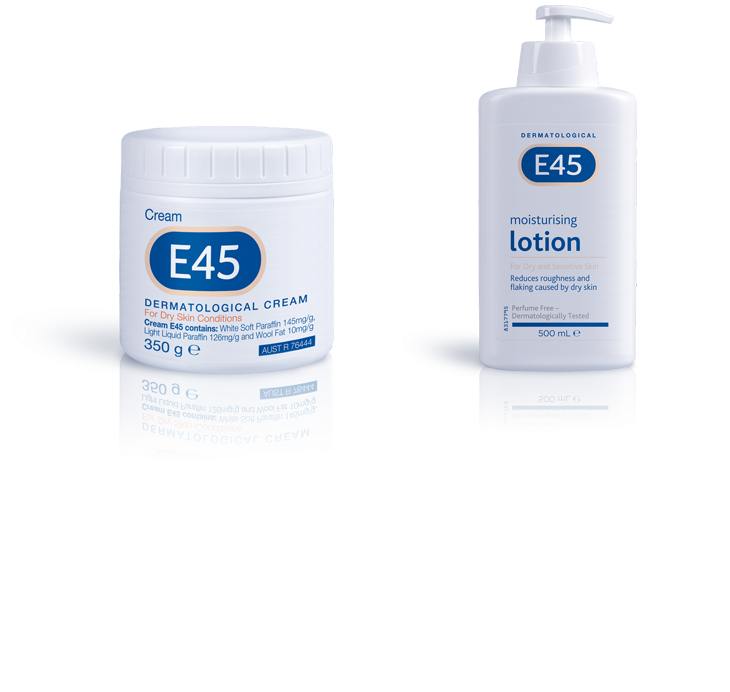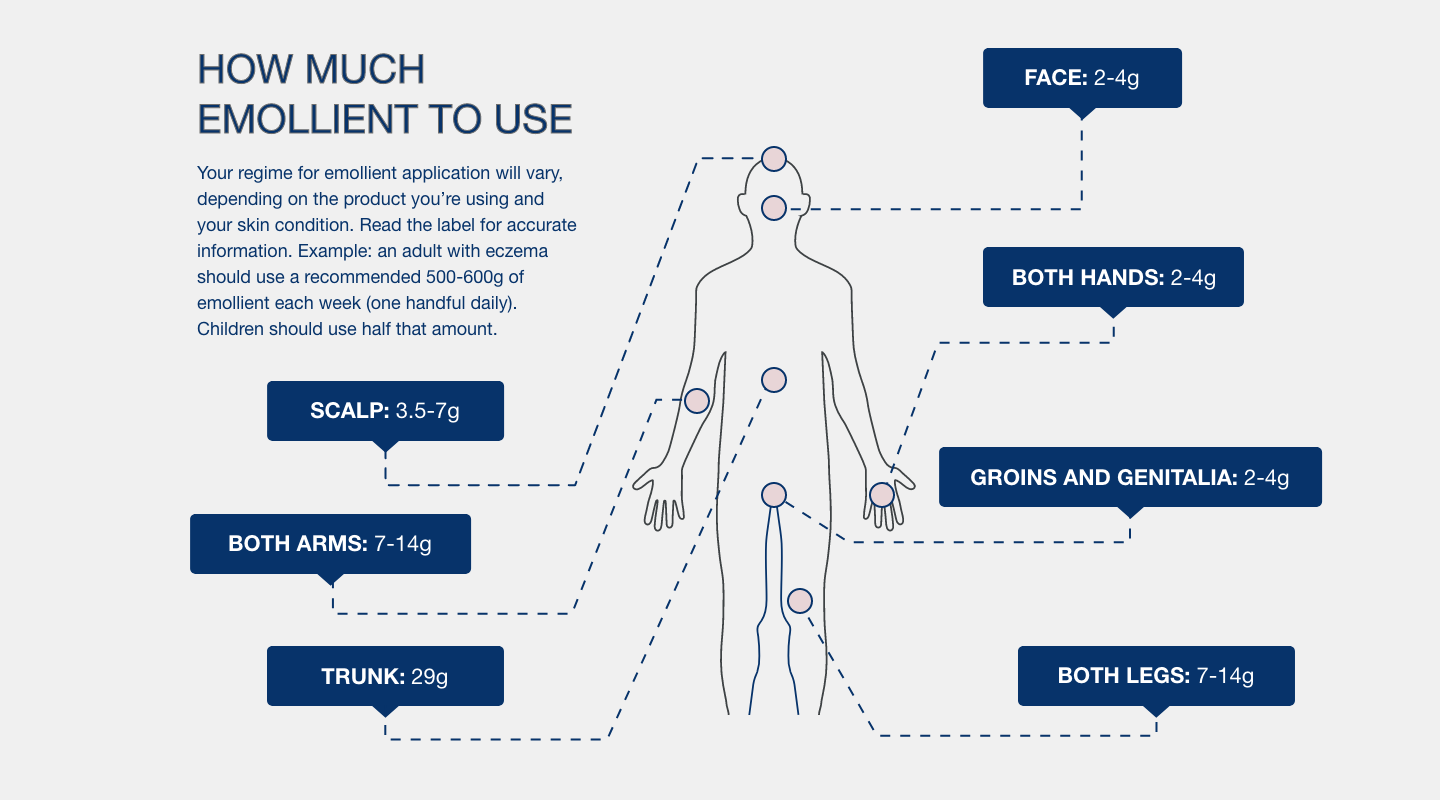Morning:
Apply an emollient moisturiser; pat onto the skin in the direction of the hair growth (do not rub).
Emollients are effective moisturising treatments for protecting and rehydrating skin that’s dry, itchy or scaly. They can help you manage skin conditions such as eczema, dermatitis, psoriasis and ichthyosis.
Applied directly to the skin, emollients provide a protective barrier to the skin, locking in moisture. They help to prevent patches of inflammation and skin condition flare-ups.
There are many different types of emollient products available: lotions, sprays, creams, ointments, gels or soap substitutes. It’s a good idea to experiment with what works best for you, to create a daily skincare regime. For example, you could apply cream every day, and carry a small tube for handy application when you’re out and about.
An emollient soap substitute can help keep your skin moisturised while bathing or hand washing. It won’t foam like normal soap, but it works just as well to cleanse your skin.


It’s important to have a daily skincare routine, applying emollients three times a day.

Apply an emollient moisturiser; pat onto the skin in the direction of the hair growth (do not rub).

Carry a tube of emollient so that you have it handy for applications during the day. If you can, carry an emollient soap alternative with you too, for hand washing.

Bathe or shower in tepid water, with an emollient cleanser (soap substitute). Pat the skin gently and while still moist, apply an emollient cream, patting it gently onto the skin in the direction of the hair growth (do not rub).


Apply all over the body including skin problem areas to help prevent flare-ups. To apply an emollient, just smooth it on in the direction of hair growth. Avoid rubbing it in to avoid aggravation and icthing.

To keep your skin hydrated, use an emollient soap substitute: just mix a small amount with a little warm water in the palm of your hand and spread over damp or dry skin. Rinse and pat dry, taking care not to rub the skin. Be careful not to slip when using emollients on tiled floors or in baths.
If for any reason, your skin reacts with a rash, overheating, burning or stinging and it doesn’t settle after a few days, talk to your GP, nurse or pharmacist.